Presentation
Hosted at the University of Reims on June 19-21, 2013
Organized by HABITER Lab. with the participation of Ignacy Sachs and Carlo Rubbia.
In 2013, the United Nations will take stock of the Millennium Development Goals (MDG). It is inevitable that the question of what to do next will be asked. What to do after the expiry of the MDG in 2015? The goal of the Third Rencontres Internationales de Reims in Sustainability Studies is to contribute to this debate, to produce some elements to answer to this question about sustainability. Particular attention will be paid to environmental governance, regional development and social justice.
The Millennium Declaration proclaimed the “collective responsibility to uphold the principles of human dignity, equality and equity at the global level” . Of course, but how to go beyond lip service and do it concretely? More precisely, how to take into consideration new global phenomena such as and of the dimension of climate change, the depletion of natural resources, financial crises, demographic dynamics, migrations and mobility.
Moreover, the political, environmental and economic context has deeply changed. Emerging countries have become the center of all attentions, given that their economies make the world go around. In the mean time, disparities among developing countries and within them are still too high. Environmental performance indicators greatly suffered at the same time, particularly in developing countries. With the diffusion of the transition to sustainability, new actors have emerged, especially in the private, associative and local sphere. They joined traditional institutional actors such as states and international organizations. It is not an accident that the two major topics of Rio+20—during which the negotiations of the post-2015 Sustainable Development Goals were launched—were “the green economy in the context of sustainable development and poverty eradication” and “the institutional framework for sustainable development.”
Indeed, the institutional framework for sustainable development is not yet very stable, as shown by the Second Rencontres de Reims in Sustainability Studies last September. In particular, the recurring question of coordination mechanisms – be it at the local, regional, national or international level – is far from settled. But that’s not all: the effectiveness of sustainable policies lies largely in their acceptance, in their collective appropriation, which is indirectly related to institutional arrangements. To think about post-2015 also means—in the tercentenary of the birth of Jean-Jacques Rousseau—to define a new social contract and to include stakeholders, neighborhood communities and groups of individuals capable of forming voluntary associations among the major players of sustainable development.
To determine the conditions and forms of this new social contract is the third objective of the Third Rencontres Internationales de Reims in Sustainability Studies. This is done in the footsteps of Elinor Ostrom, who showed that communities of interest or neighborhoods could be more effective in collectively managing commons than the market or traditional organizational structures.
It is important, in fact, in order to shape truly sustainable policies, to define what constitutes a “good” environment for the societies involved: one in which the improvement of environmental conditions strictly speaking (water quality, air pollution, biodiversity, rational use of resources, soils and energy, etc.) will lead to the improvement of living conditions; one in which technical devices and technologies, deployed in spaces large enough to accommodate imported sustainability, may be appropriate through new lifestyles.
Program and videos
Wednesday 19 June 2013
9:45 am – Welcome Speech
Marie-Hélène Aubert, Adviser to the President of French Republic for International Negotiations on Climate and Environment
Gilles Baillat, President, Rheims University
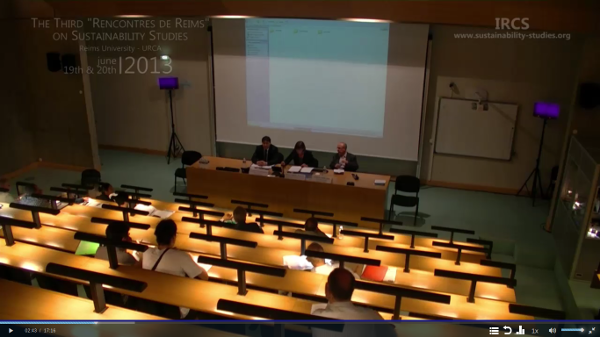
10:10 am – Opening
François Mancebo, Professor, Rheims University – Director, International Research Center on Sustainability (IRCS)
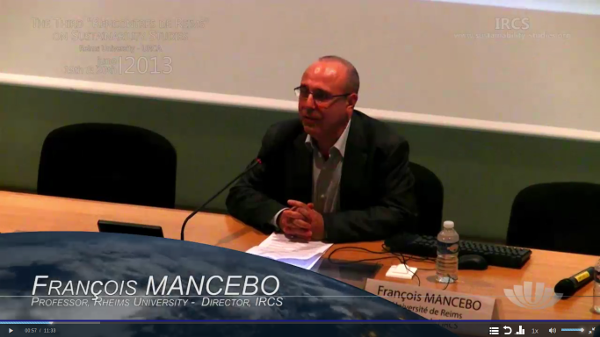
Inaugural Speech
10:20 am – Managing the Anthropocenic Era: the IPCC legacy ten years after
Carlo Rubbia, Scientific Director, Institute for Advanced Sustainability Studies (IASS), Potsdam – Nobel Laureate in Physics, 1984
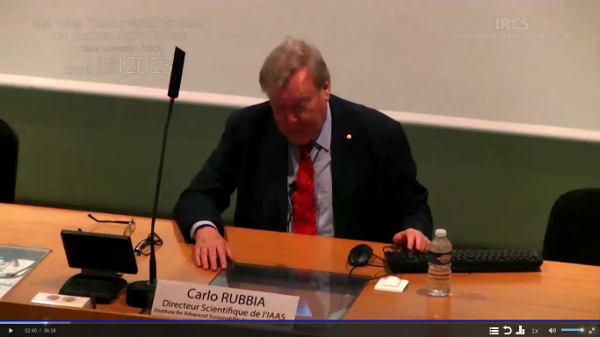
10:45 am – Rousseau, Rio and the Green Economy
Carlos Lopes, Executive Secretary, United Nations Economic Commission for Africa (UNECA)
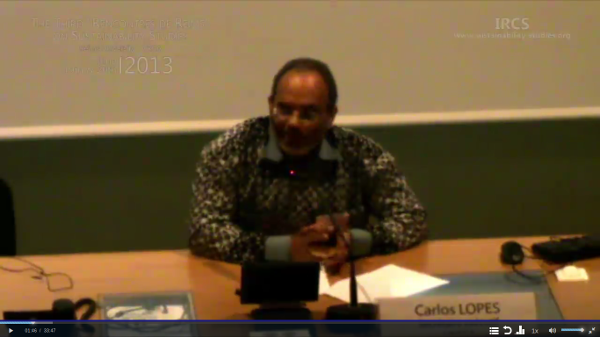
11:10 am – Integrating Equity Considerations Into the SDGs
Leena Srivastava, Vice Chancellor, TERI University and Executive Director, The Energy and Resources Institute (TERI), Delhi
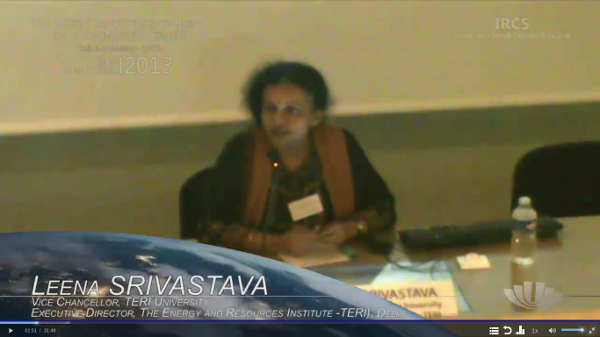
11:35 am – Debate 1
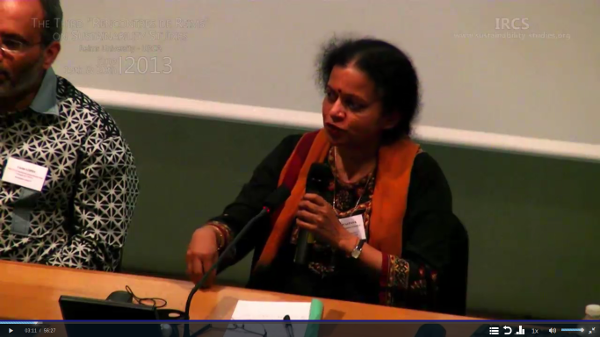
12:30 am – Lunch
Toward a New Social Contract?
2:30 pm – Issue Linkage and the Prospects for SDGs Contribution to Sustainability
Peter Haas, Professor of Political Science, University of Massachusetts, Amherst
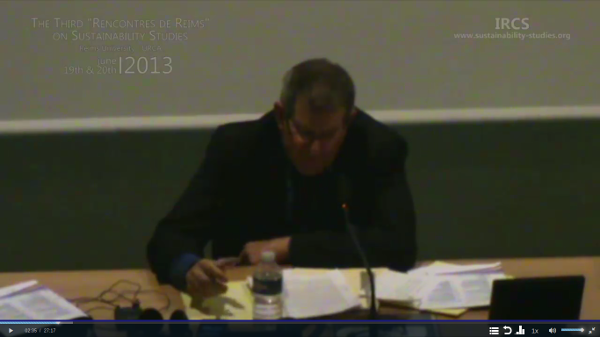
2:55pm – Navigating the Anthropocene: Improving Earth System Governance
Frank Biermann, Professor and Head, Department of Environmental Policy Analysis, VU University Amsterdam, and Director-General, Netherlands Research School for Socio-Economic and Natural Sciences of the Environment
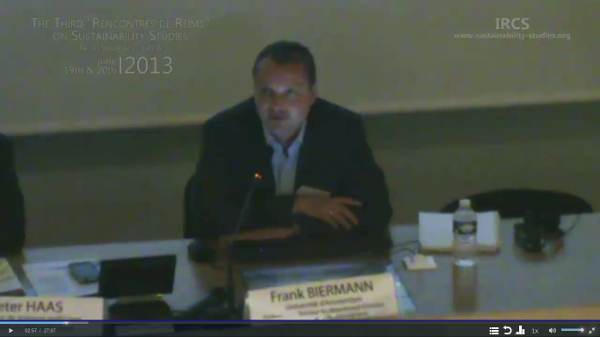
3:20 pm – The Rescaling of Global Environmental Governance
Liliana Andonova, Professor and Head, Department of Political Science, as well as Co-Director, Center for International Environmental Studies, Graduate Institute of International and Development Studies, Geneva
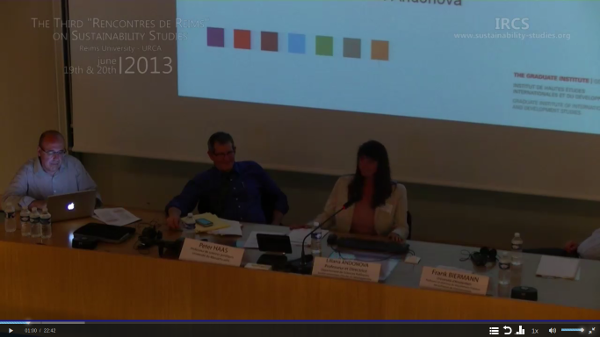
3:50 pm – Debate 2
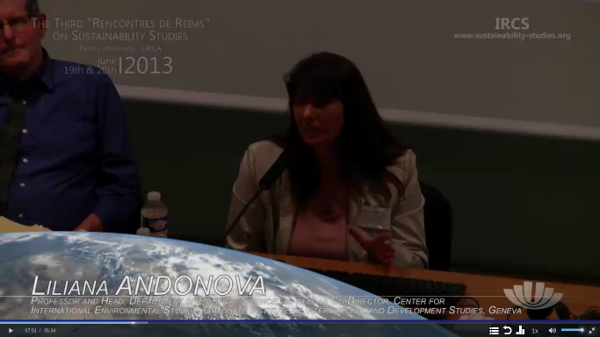
4:30 pm – Suez Environnement
Thomas Perianu, Director Sustainable Development at Suez Environnement
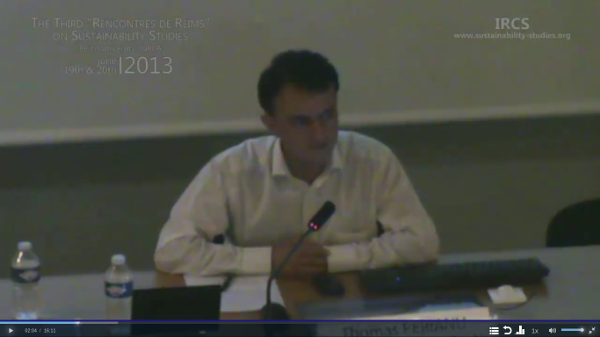
4:55 pm – UNITAR
Alex Mejia, Director of Local Development Programme of UNITAR (United Nations Institute for Training and Research)
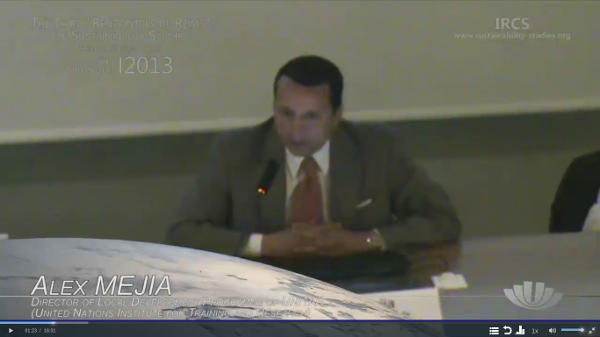
5:20 pm – Debate 3
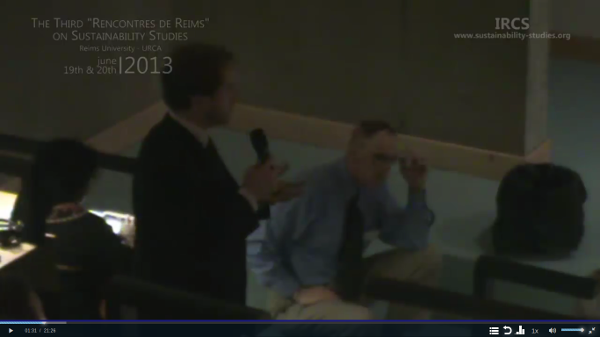
End of the first day
Thursday 20 June 2013
Panel 1
10:00 am – Putting the Individual at the Centre of Development: Indicators for a New Social Contract
Arthur Dahl, President, International Environment Forum (IEP) and Former Deputy Assistant Executive Director United Nations Environment Program (UNEP)
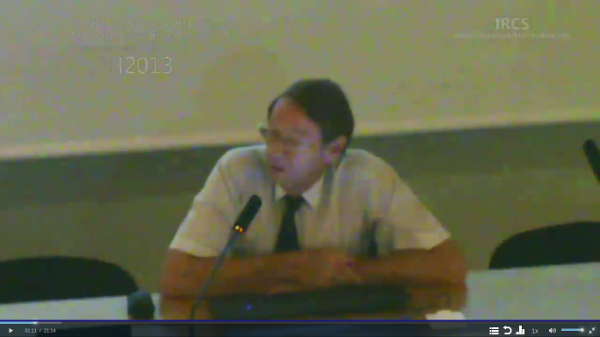
10:25 am – The Future of Global Environment Governance
Harris Gleckman, Senior Fellow at the Center for Governance on Sustainability
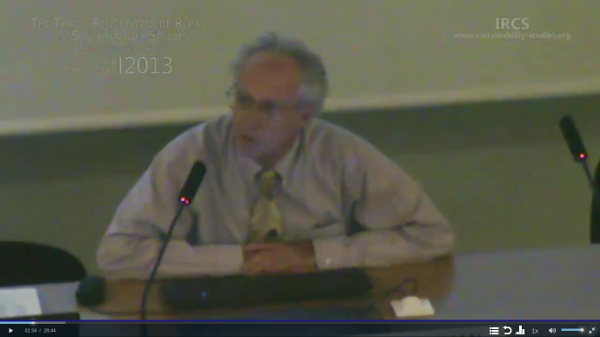
10:50 am – Debate 4
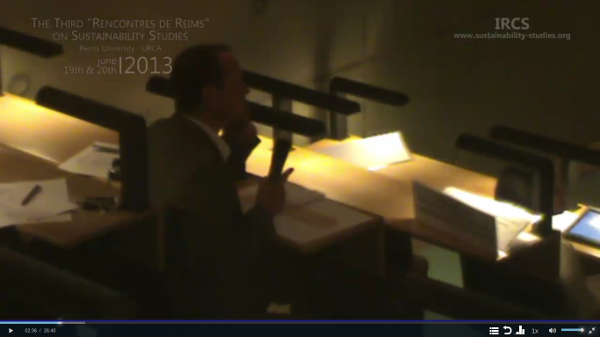
11:25 am – A Global Social Pact: Can We Really Design Global Development Objectives?
Christian Comeliau, Honorary Professor of Development Economics, Graduate Institute of International and Development Studies, Geneva
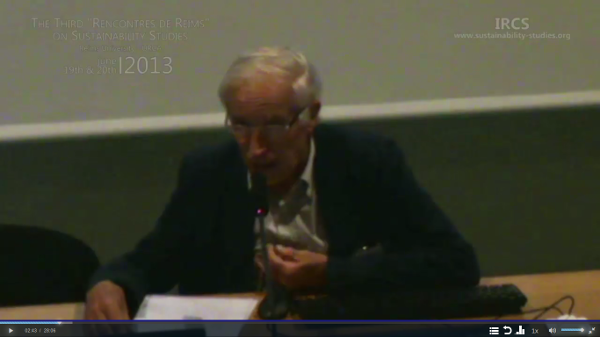
11:45am – The Collaboration Paradigm: a New Pact For the Knowledge Economy
Ladislau Dowbor, Professor of Economics, Pontifical Catholic University of São Paulo
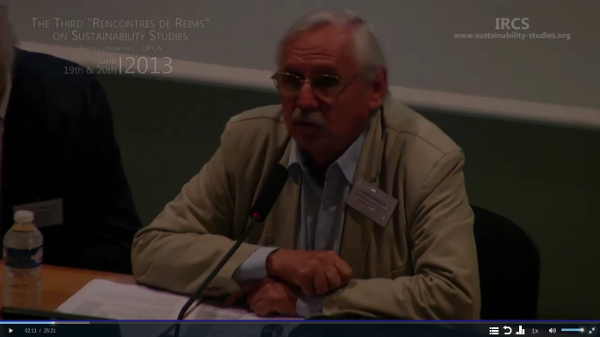
12:10 am – Debate 5
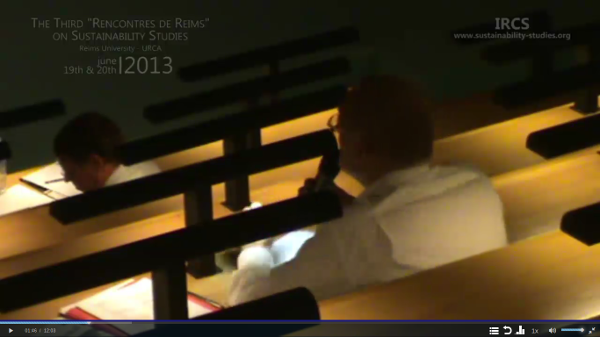
1:00 pm – Lunch
Panel 2
2:30 pm – Legitimacy of Global Energy Governance
Sylvia Karlsson-Vinkhuyzen, Assistant Professor of Public Administration and Policy, Wagenigen University
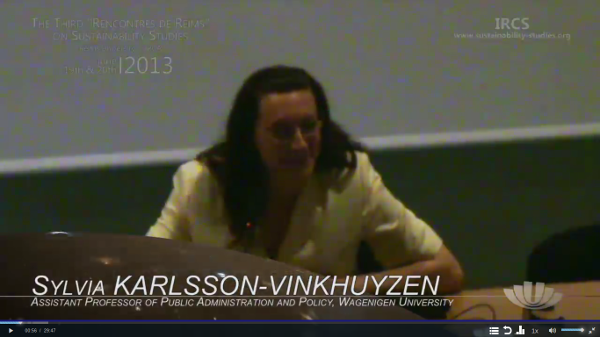
2:55 pm – Governance Option for Steering Transition to Low Carbon Cars
Marc Dijk – Research Fellow, International Center for Integrated Assessmentand Sustainable Development (ICIS), Maastricht University
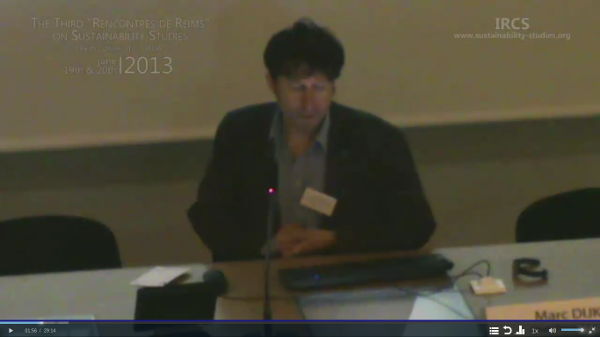
3:20 pm – Sustainable Development Governance in Transboundary Mountain Regions: Lessons and Prospects
Jörg Balsiger, Senior Researcher and Lecturer, Swiss Federal Institute of Technology in Zürich (ETH), as well as Senior Researcher, Department of Geography and Environment, University of Geneva
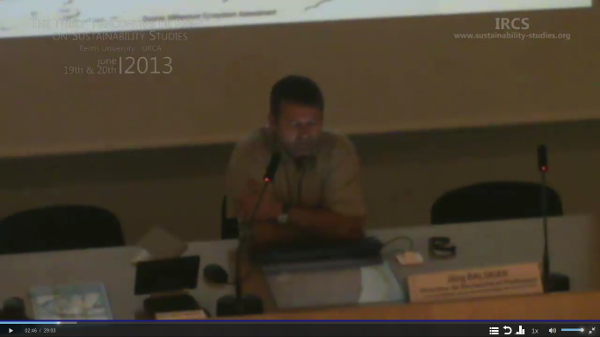
3:45 pm – Debate 6
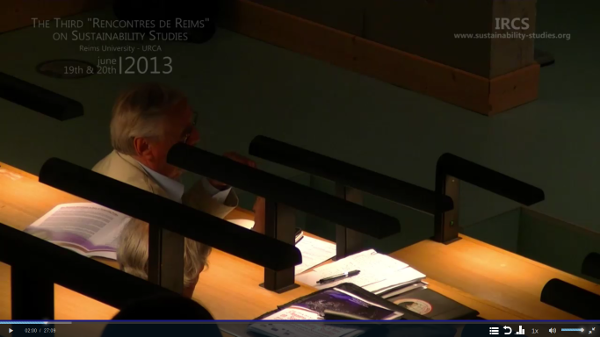
4:30 pm – End of working

